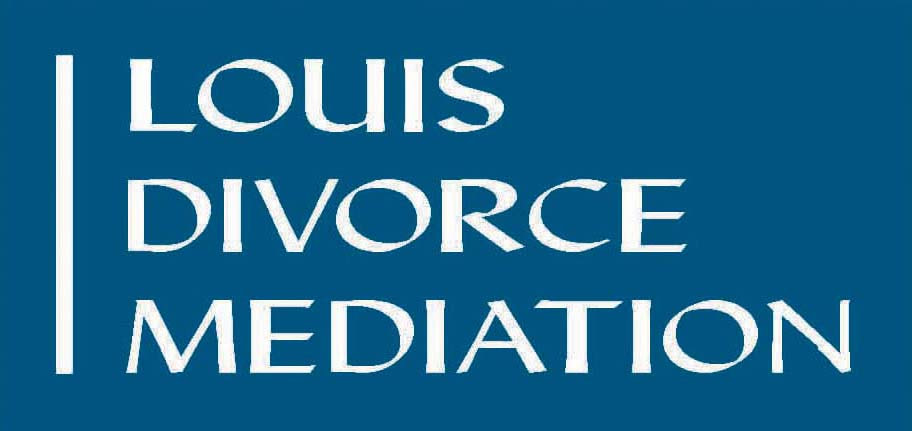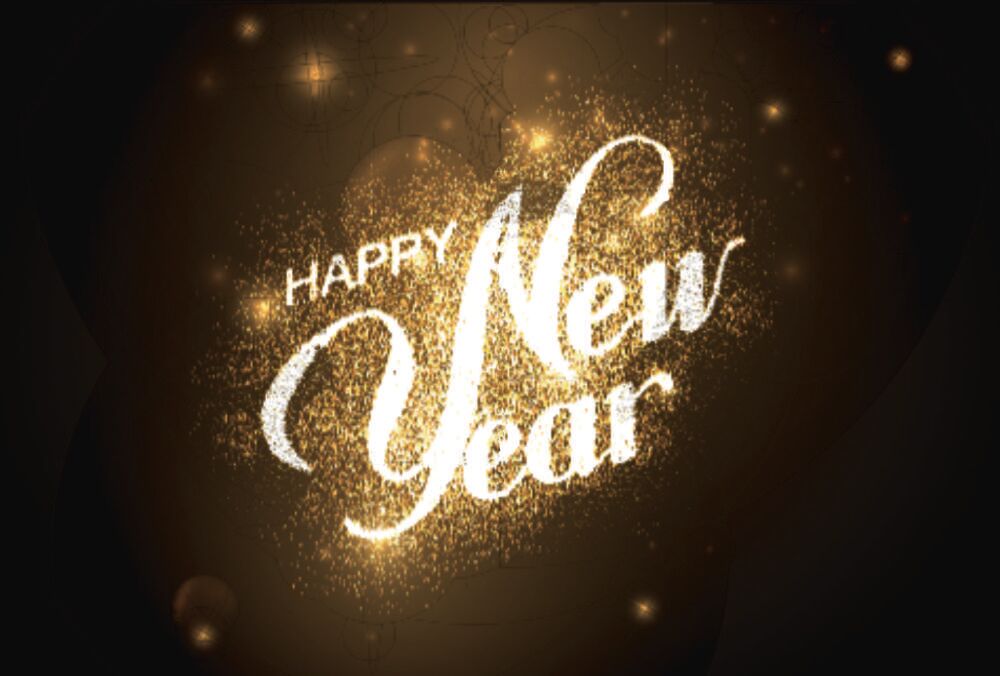Louis Divorce Mediation ~ Online and In-Person Mediation in Chicago
|
The last weeks of the year—Thanksgiving and the winter holidays—often bring to mind the concept of gratitude—appreciation for positive experiences, thankfulness for growth in understanding, and gratefulness for the enrichment of new opportunities. This concept of gratitude often emerges for me in the process of divorce mediation.
I find that couples in a “successful” mediation process express gratitude for arriving at good decisions and having the chance to craft a positive and more certain future for their families with the outcome of those decisions. Mediation is a profound and often challenging learning experience. We may ask, “What has been learned? And whom can I thank for helping me learn?” I find that couples in a “successful” mediation process express gratitude for arriving at good decisions and having the chance to craft a positive and more certain future for their families with the outcome of those decisions. The end of a “successful” mediation can be filled with a range of emotions. For you, there is often a sense of accomplishment, sometimes to your own surprise. While your marriage did not work, you were able to team up to make your own decisions for how to co-parent your children, allocate your assets and debts, and create the best possibilities for two sustainable households. At the same time, as the cloud of uncertainty has lifted, replaced by greater clarity about the future, the reality that you as a couple are approaching the “official” end of your marital relationship carries its own set of feelings and reactions, including a need to accept both loss and failure. These are competing emotions, having resolved the issues of divorce but now having to face the fact that the marriage has indeed ended. From my chair, I always attempt to put the most positive face on what has happened in mediation. While a mediator’s skills—structuring an effective process and facilitating difficult conversations—play an important role in helping you as a couple meet your goals for coming to mediation, the real credit belongs to you. After all, mediation requires the courage to engage a process that involves total transparency and take responsibility for doing the work of gathering information, engaging in challenging conversations with a soon-to-be ex-spouse, and making choices about the future. And so, along with giving you credit for what you have been able to achieve in mediation, I close every mediation with gratitude that you trusted me to play a role in your transition. Divorce is an experience that most want to forget so you can move on. However, for me, the honor of making a difference is something I continue to remember and remain thankful for.
1 Comment
For parents who have decided to separate and divorce, the prospect of breaking this news to the children can be overwhelming—even paralyzing.
This topic will often arise in mediation when parents are still living together and would prefer to resolve matters involving the children (where each parent will live upon separation and what the parenting time schedule will look like) before talking to the children about the impending divorce. As much as you may dread the thought of this discussion with your children, my experience indicates that, once you have talked with them, the emotional anticipation of the conversation will be replaced by relief that you no longer are keeping something from your children. You may well take some pride in how you handled the challenge. At one of the first mediation conferences I attended, the keynote presenter was Dr. Joan Kelly, who is internationally recognized as a child psychologist and author of many articles and research studies involving children of divorce. Her insights have proven valuable to many practitioners. In 2009, she authored a valuable publication, “What Should We Tell the Children? A Parent’s Guide for Talking About Separation and Divorce.” I have shared this with many clients. The publication is available for purchase from the American Academy of Matrimonial Attorneys. The conversation you have with your children [about your divorce] is the first and perhaps the most important opportunity you will have to show them that you are committed to a constructive co-parenting relationship. To help you prepare, let me share some key points from Dr. Kelly, along with my own thoughts:
Telling your children about your divorce is an early test of your transition into the future. I encourage you to seek out resources to help you come through this with a sense that you achieved a passing grade, maybe even an A+. In any successful relationship, trust is the foundation. When you can trust someone, you are more likely to be open and more willingly vulnerable in that person’s presence.
In many broken marriages, the trust between spouses has diminished—a little or even to the point of being missing entirely. For example, trust evaporates when there has been infidelity or a lack of honesty. In divorce mediation cases, the absence of trust can be quite challenging. An underlying principle of mediation is that you both make a good faith effort to work toward an agreement that will satisfy both of you. Even when trust is at a low, protocols that include full financial disclosure (and possibly sworn financial affidavits) can provide the fuel for agreements in spite of loss of trust. While it can be difficult or in some cases nearly impossible to rebuild trust, there are elements of trust, which I describe as pillars, that you can consider employing during the mediation process. While it can be difficult or in some cases nearly impossible to rebuild trust, there are elements of trust, which I describe as pillars, that you can consider employing during the mediation process. The goal does not have to be rebuilding trust (although when that does happen, the chances of a better future relationship are greatly improved). The goal can simply be to prevent your mediation discussions from stalling or going backwards. Here is a list of those pillars that help to form a foundation of trust. Recognizing and addressing these can lead to a better mediation process.
Keeping these pillars in mind as you navigate the difficult conversations of mediation may create a positive vibe—or at least prevent a negative one—and may even help the process go faster, which is what most clients seek. At the beginning of the divorce mediation process, I send out a questionnaire to each spouse to help me find out how the couple communicates. In the responses I often discover that both find it hard to communicate effectively. This is not particularly surprising, as poor communication is often a symptom of a broken marriage. So, as a couple enters divorce mediation, the objective of successful communication is often facing off against inherent challenges experienced during the marriage.
When communication centers on disagreements, there is a strong tendency for each side to dig in, assume a strong position, and exhibit intense emotions. Depending on how you participate in these difficult conversations, you may “fight to be right” or, alternately, opt for getting it over with—give in, be done with it and be free. I believe that mediation should promote mutually acceptable decisions. Difficult dynamics, if not addressed during mediation sessions, can often result in agreements that are regretted later by one or both spouses. Divorce mediation involves an aspect of negotiation. More importantly, there is an opportunity in every mediation process to encourage two-way conversation. This promotes understanding and allows each of you to learn from the other. Divorce mediation involves an aspect of negotiation. More importantly, there is an opportunity in every mediation process to encourage two-way conversation. This promotes understanding and allows each of you to learn from the other. I have been engaged in my own learning experience over the past 15 months [credits to Cheryl Picard, author of Practising Insight Mediation, and my teacher, Jacinta Gallant from Prince Edward Island, Canada]. I’ve learned that conflict is rooted in an individual’s perception that something that matters greatly is threatened by the other person. This can worsen when your spoken intention is interpreted quite differently by the other. It's little wonder to me that, in the absence of a neutral mediator who can help you better understand each other, the chances of a resolution that suits both of you will be diminished. For me, the golden nugget in all of this is that you can understand what’s important to each other without necessarily agreeing with what is being said. At the same time, if you understand each other, it’s showing that you are listening to each other. Think how much better you each will feel if you are being heard! Once you are all engaged in a learning dialogue—confident that what you are saying is being interpreted as you hoped it would be—the foundation has been built to explore choices that address what matters to each of you. From there, the path to agreement will hopefully be clearer. Like any building, the ability to withstand the test of time will depend on having a stable foundation. An article I recently read by Stephanie Vozza was entitled, “’I don’t know’ can be the smartest answer.”
This caught my eye because I have often used a similar saying, namely, “The most important thing that you can know is what you don’t know.” Stephanie’s article goes on to address how this statement can be a lesson for leadership. As a mediator, I do not relate as much to the concept of leadership except to note that I am a leader of the mediation process. This often means taking the lead with my clients in helping you to have a constructive dialogue. Being willing to admit that we don’t have the answer has multiple significances:
Knowing what you don’t know—and being able to communicate this to others—symbolizes truth, curiosity, openness and credibility—all of which can enhance the difficult conversations that take place in divorce mediation. Knowing what you don’t know—and being able to communicate this to others—symbolizes truth, curiosity, openness and credibility—all of which can enhance the difficult conversations that take place in divorce mediation. Each marriage has its own uniqueness, involving two individuals with their own unique identify and style. In past generations, there have typically been assigned roles, like working father and stay-at-home mother, but this division of labor has changed significantly in the modern world. Making assumptions about the current roles of spouses is done at a mediator’s peril!
I have found it important in divorce mediation to consider a critical element in a marriage—the contributions each of you have brought to the relationship, whether positive or negative. While not always directly related to these roles, I find it important in divorce mediation to consider a critical element in a marriage—the contributions each of you have brought to the relationship, whether positive or negative. Why does a future-focused mediation process need to consider individual contributions from the past? Here are a few observations:
It's often been said that the emotions of divorce are similar to those involving death. When a loved one dies, we are moved to celebrate their lives. As your marriage ends, you can still remember what you both contributed positively to the time you were together. The decision to end a marriage is rarely made by both spouses at the same moment. Usually one of you, after much consideration, and possibly after efforts have been made to “save” the marriage, declares to yourself (and maybe to the other), “I am done.”
If you are the spouse on the receiving end of this message, your reaction could be one of shock, dismay, or a sad acknowledgment of something you may have seen coming but did not feel ready to accept. For both of you, the immediate focus is likely to be on yourself, and a common thought is “What will this mean for me?” and, if you are a parent, “What will this mean for our children?” It’s important for each of you to reflect upon what matters most to you about your future in the face of transition and uncertainty. With your future in the balance, both as an individual and possibly as a parent, putting “me” as a priority is to be expected. If you choose to litigate your divorce, and take a risk of turning your divorce into a legal battle, the spotlight will remain on you, since all that will matter is what is important to “me.” Mediation will require you to reframe the conversation from “me” to “we.” My role as your mediator is to support that shift… On the other hand, mediation will require you to reframe the conversation from “me” to “we.” My role as your mediator is to support that shift, which means that you will each have a voice, you will each be heard, and together you will stay focused on what it will take for both of you to come to agreements on your own terms that don’t ignore what matters to each of you individually. Mediation is a unique opportunity to channel what matters for each of you (the “me”) into a plan for you both (the “we”). With the ending of a year, a new one is beginning. In one’s work life, a job ends and hopefully a new one begins.
In my own life, over the last 13 years, I’ve seen the years change, my career change (from public finance and local government service to mediation), and my home change from upstate New York to Chicago. It’s been a saying of mine that life is a book of many chapters. In a marriage that ends, that chapter of your life will conclude. This ending, just like a difficult year, may make you want to forget the bad experiences. Given the emotional duress that often comes with divorce, that may not be easy. Hopefully, but not always, the episode that is ending had its bright moments, and these are the memories to preserve. In every challenge, there is a lesson to be carried to the next phase of life. We can learn so much from life experiences; we are wiser for what we take away. While there is a tendency to bury what has been hurtful or difficult, we should strive to review our experiences as a teaching opportunity to guide us forward into the future. In mediation, my hope is that our time together will help create a bridge from the past into the future, shaped by lessons learned and goals that you can set for yourselves. Just as every new year provides a blank slate for us to continue writing the story of our lives, one’s life after divorce is a new chapter of one’s own making. In mediation, my hope is that our time together will help create a bridge from the past into the future, shaped by lessons learned and goals that you can set for yourselves. As we leave the year 2022 and move away from jobs, homes or marriages, I encourage you to embrace the natural transition from an ending to a beginning—a fresh start in life’s journey. In a dialogue with a colleague recently, we were discussing a problem encountered by a client and how to address problem solving in mediation.
It seems that, to some, it’s important to know what a court would do, and perhaps that’s how the professional would steer you. When it comes to what a court would do, I prefer to send you to an attorney who can better advise you. I often wonder how much certainty a consulting attorney could offer, as it has always seemed to me that there can be a great deal of subjectivity in an individual judge’s interpretation of the law, based on the facts of a specific case. From my perspective, the “problem” was created by one or both of the parties, and, as mediators, I don’t believe it is our role to solve the problem, but rather to help the parties understand the problem—discuss what matters in relation to addressing the question, consider the advantages and disadvantages of your options, and support efforts to help you make your own, informed decision on how to resolve the issue. However, it’s important to remember that, when you as clients are facing a situation involving problem solving, I prefer to help you determine the best way to solve it. It could also be the case that you just want help to figure out the issue on your own, not caring as much about the specifics of the law at this juncture as what seems acceptable to both of you based on your own values and needs. It could also be the case that you just want help to figure out the issue on your own, not caring as much about the specifics of the law at this juncture as what seems acceptable to both of you based on your own values and needs. My colleague laid out several viable approaches that clients could take. Each of these could be examined with you, looking at what the financial implications of each option would be, and then letting you use that analysis of options to inform yourselves as to which choice may be most suitable. Helping clients develop a set of options, and then engage analysis and discussion, would seem to fit the facilitative mediation process best in this situation. As I write this, I am returning from the funeral services for my father-in-law, Robert.
Bob lived to the age of 96 and enjoyed mostly good health for all of his life. I first met Bob when I was dating his daughter (my wife, Diane) in 1984. While he did not know me, I was treated then and always with cordiality and respect. While Bob was a man not inclined to say much, whenever I spoke with him he would freely share his thoughts, which were grounded in common sense. As a child of the Great Depression and later a World War II veteran, Bob was a member of what has been referred to as the Greatest Generation. I always knew that Bob was very sensible with his money. What I came to learn in the last few days is that Bob never took out a loan, and, therefore, was able to save considerably, even though he earned only a modest income while working for Corning, Inc. Bob’s story reminds me that there is much to learn from our elders—constructive attitudes about money, treating others with respect, and emphasizing thoughtfulness. Bob’s story reminds me that there is much to learn from our elders—constructive attitudes about money, treating others with respect, and emphasizing thoughtfulness. Bob enjoyed life fully for over 40 years after retirement, including the last four years that he spent in the loving and devoted care of my brother- and sister-in-law. There is so much to admire about this simple man. How does this relate to my work in mediation? I understand that clients who are divorcing face immense challenges and may not be thinking about what their lives mean to others. I can only hope, as you transition into your next chapter, that you will remember the elders in your life who inspire you and that you will live a future that can likewise inspire others. |
Categories |
David Louis, MPA, CDFA® • Louis Mediation Services - Chicago
|
Chicago Office: 1700 W Irving Park Rd., Suite 105, Chicago, IL 60613
Northbrook Office: 555 Skokie Blvd., Suite 500, Northbrook, IL 60062 |
Copyright © 2024











 RSS Feed
RSS Feed